On Knowing You Can Bear It (In the Time of Coronavirus)
There is a story in Jack Kornfield’s wonderful book, The Wise Heart, that reminds us of what kindness and compassion can do for us in the immediacy of illness, uncertainty and fear, as individuals and collectively as a human family:
 JK: On one occasion I was sick with what was probably malaria, lying in my hut, feverish and wretched. I had received medicine but it was slow in taking effect. Ajahn Chah came to visit me. “Sick and feverish, huh?” he asked. “Yes,” I replied weakly. “It’s painful all over, isn’t it?” I nodded. “Yes, it’s suffering alright.” He paused. “Here. This is where we have to practice. Not just sitting in the meditation hall. It’s hard. All the body and mind torments.” He waited for a while, then he looked at me with the warmth of a kind grandfather. “You can bear it, you know. You can do it.” I felt that he was fully there with me, that he knew my pain from his own hard struggles. It took some time for the sickness to pass, but his simple kindness made the situation bearable. His compassion gave me courage and helped me find my own freedom in the midst of hardship.
JK: On one occasion I was sick with what was probably malaria, lying in my hut, feverish and wretched. I had received medicine but it was slow in taking effect. Ajahn Chah came to visit me. “Sick and feverish, huh?” he asked. “Yes,” I replied weakly. “It’s painful all over, isn’t it?” I nodded. “Yes, it’s suffering alright.” He paused. “Here. This is where we have to practice. Not just sitting in the meditation hall. It’s hard. All the body and mind torments.” He waited for a while, then he looked at me with the warmth of a kind grandfather. “You can bear it, you know. You can do it.” I felt that he was fully there with me, that he knew my pain from his own hard struggles. It took some time for the sickness to pass, but his simple kindness made the situation bearable. His compassion gave me courage and helped me find my own freedom in the midst of hardship.
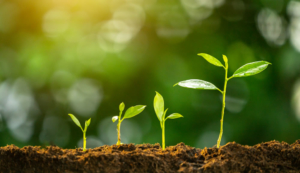 Much of my own teaching centers around guided meditations, the application of mindfulness, practices of personal development, all towards the aims of optimal well-being, increased focus and performance at work and reducing our day to day stress. These are all honorable and important intentions for the quality of our lives. I feel privileged to be able to do it.
Much of my own teaching centers around guided meditations, the application of mindfulness, practices of personal development, all towards the aims of optimal well-being, increased focus and performance at work and reducing our day to day stress. These are all honorable and important intentions for the quality of our lives. I feel privileged to be able to do it.
AND what drew me to mindfulness so very long ago was its powerful antidote to fear and suffering and trauma, moments like these- when any escape is a mirage and avoiding reality for something more palatable is not only dangerous but sometimes lethal.
Mindfulness as part of an overarching philosophy of our human suffering and how to ease that suffering has its underpinnings in the teaching of compassion as our very human nature. Mindfulness without embodied kindness lacks the power to sustain our spirit when it tires.
 As the poet Naomi Shihab Nye writes: “Before you know what kindness really is you must lose things/feel the future dissolve in a moment like salt in a weakened broth. What you held in your hand, what you counted and carefully saved, all this must go so you know how desolate the landscape can be between the the regions of kindness…then it is only kindness that makes sense any more.
As the poet Naomi Shihab Nye writes: “Before you know what kindness really is you must lose things/feel the future dissolve in a moment like salt in a weakened broth. What you held in your hand, what you counted and carefully saved, all this must go so you know how desolate the landscape can be between the the regions of kindness…then it is only kindness that makes sense any more.
 The answer say the sages and those who have fought the hard fight (as Paulo Coehlo likes to call it) is kindness. Kindness is a tender quality of being with unbreakable roots. You can bear it. You are being held in your own heart, cared for by the stranger who is here to make you well and sharing the fear among us with friends and family, dividing it up and breaking it into more manageable bites.
The answer say the sages and those who have fought the hard fight (as Paulo Coehlo likes to call it) is kindness. Kindness is a tender quality of being with unbreakable roots. You can bear it. You are being held in your own heart, cared for by the stranger who is here to make you well and sharing the fear among us with friends and family, dividing it up and breaking it into more manageable bites.
Kindness is the ‘com’ part of compassion. Being with the suffering- your own and that of others, with gentleness and a sincere desire to help reminds us of our resilient nature and the indomitability of the human spirit.

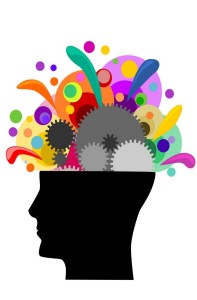 There are lots of ways in which we as human beings can get caught under the vast net of stress in our lives. We oftentimes find ourselves feeling trapped by difficult circumstances and the attending feelings and thoughts that arise from them. All of this can create a sense of being overwhelmed and life at times can appear unmanageable. We then struggle and we suffer. Often times the root cause no longer exists but our coping strategies themselves have become problematic.
There are lots of ways in which we as human beings can get caught under the vast net of stress in our lives. We oftentimes find ourselves feeling trapped by difficult circumstances and the attending feelings and thoughts that arise from them. All of this can create a sense of being overwhelmed and life at times can appear unmanageable. We then struggle and we suffer. Often times the root cause no longer exists but our coping strategies themselves have become problematic. 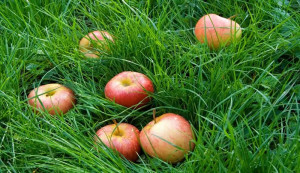







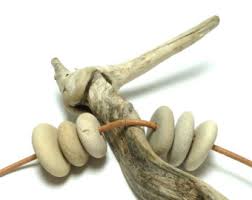
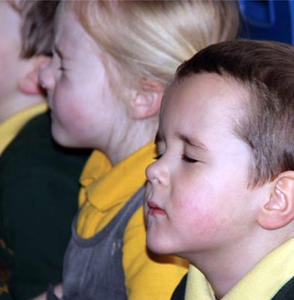
 Last November, I attended the International Symposium for Contemplative Studies in Boston. There were lots of luminaries in the fields of neuroscience, psychology, education, philosophy, and the humanities. Counted among these were the Dalai Llama, Jon Kabat-Zinn, Daniel Goleman, Arianna Huffington, and so many more who are well-known to those in the field, reflecting the explosion really of mindfulness into all aspects of our modern society.
Last November, I attended the International Symposium for Contemplative Studies in Boston. There were lots of luminaries in the fields of neuroscience, psychology, education, philosophy, and the humanities. Counted among these were the Dalai Llama, Jon Kabat-Zinn, Daniel Goleman, Arianna Huffington, and so many more who are well-known to those in the field, reflecting the explosion really of mindfulness into all aspects of our modern society.
 You may be familiar with the adage “Try, try, and try again. Then, at last, youwill succeed.” And there can be some truth in that. Preparation, practice and experience are vital ingredients to success. But we also know that constant pushing, striving, and doing in a largely effortful way is stressful and often, self-defeating. Philosophers and neuroscientists alike agree that our most productive, creative self emerges when we are in the flow. Engaging with our lives in a relaxed but keenly receptive way. Author Edward Slingerland in his book “Trying Not to Try: The Art and Science of Spontaneity” calls this “embodied cognition.” It’s often referred to as being “in the zone” or acting spontaneously: it is a state of complete mental focus and ease.
You may be familiar with the adage “Try, try, and try again. Then, at last, youwill succeed.” And there can be some truth in that. Preparation, practice and experience are vital ingredients to success. But we also know that constant pushing, striving, and doing in a largely effortful way is stressful and often, self-defeating. Philosophers and neuroscientists alike agree that our most productive, creative self emerges when we are in the flow. Engaging with our lives in a relaxed but keenly receptive way. Author Edward Slingerland in his book “Trying Not to Try: The Art and Science of Spontaneity” calls this “embodied cognition.” It’s often referred to as being “in the zone” or acting spontaneously: it is a state of complete mental focus and ease.
